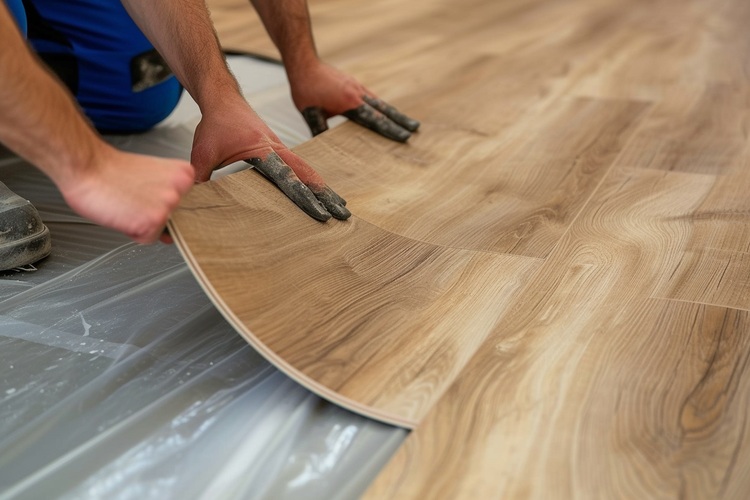Complete Guide to Professional Flooring Installation Services
Discover practical insights on flooring installation services, covering essential steps and considerations for a smooth process. From choosing materials to understanding installation methods, this guide offers helpful information to navigate options effectively and make informed decisions for home or office spaces.

Flooring installation is a crucial aspect of any renovation or new construction project that significantly impacts both the aesthetic appeal and functionality of your space. Professional installation ensures that your new floors will look beautiful and perform optimally for years to come. From residential hardwood installations to complex commercial flooring projects, proper technique and expertise are essential for achieving lasting results.
What to Expect During Hardwood Flooring Installation
Hardwood flooring installation is a meticulous process that requires proper preparation and execution. Before installation begins, the subfloor must be thoroughly inspected and prepared to ensure it’s clean, level, and dry. Moisture testing is particularly important for hardwood installations since excessive moisture can cause warping and buckling over time.
Professional hardwood flooring installers typically begin by acclimating the wood to your home’s environment for several days. This crucial step allows the wood to adjust to the temperature and humidity levels of your space, minimizing expansion and contraction after installation. During the actual installation, experts will carefully measure and cut boards, ensuring proper alignment and secure attachment to the subfloor.
Depending on the type of hardwood flooring chosen, installation methods may include nail-down, glue-down, or floating techniques. After installation, professionals will apply the finishing touches such as sanding, staining (if needed), and applying protective sealants to enhance durability and appearance.
Why Commercial Flooring Installation Requires Specialized Expertise
Commercial flooring installation presents unique challenges that differ significantly from residential projects. Commercial spaces typically experience heavier foot traffic, require stricter adherence to building codes, and often need specialized flooring solutions that balance durability with aesthetic appeal.
Commercial flooring installation experts understand the importance of minimal business disruption during the installation process. Many professionals offer after-hours or phased installation schedules to accommodate business operations. Additionally, they’re knowledgeable about ADA compliance requirements and safety standards that apply specifically to commercial environments.
The scope of commercial projects often requires larger installation teams with specialized equipment and extensive experience handling various flooring materials including carpet tiles, luxury vinyl tile (LVT), rubber flooring, and specialized hard surfaces. Commercial installation also frequently involves complex pattern layouts, logo inlays, or wayfinding elements that require precision cutting and placement.
Benefits of Professional Vinyl Flooring Installation
Vinyl flooring has evolved dramatically in recent years, offering remarkable durability and realistic appearances that mimic natural materials. However, achieving optimal results with vinyl flooring requires professional installation expertise. Vinyl flooring installation experts understand the nuances of working with different vinyl products, from luxury vinyl planks (LVP) to sheet vinyl.
Professional installers ensure proper subfloor preparation, which is critical for vinyl installation. Even minor imperfections in the subfloor can telegraph through vinyl flooring over time, compromising both appearance and durability. Experts also understand the importance of proper acclimation and expansion gaps to prevent buckling or warping.
For complex vinyl installations involving custom designs, intricate patterns, or waterproof applications, professional installation becomes even more valuable. Installers use specialized tools and techniques to ensure seams are properly sealed, edges are finished professionally, and the overall installation meets manufacturer specifications to maintain warranty protection.
How to Choose the Right Flooring Installation Service
Selecting the right installation service for your flooring project requires careful consideration of several factors. Begin by researching local companies with specific experience installing the type of flooring you’ve selected. Look for installers who are certified by major flooring manufacturers, as this indicates they’ve received specialized training and follow industry best practices.
Request detailed quotes that outline all aspects of the installation process, including subfloor preparation, materials, labor costs, and timeline. Be wary of quotes that seem unusually low, as proper installation requires time and expertise. Ask potential installers about their warranty policies, both for the materials and the installation work itself.
Check references and reviews from previous customers, paying particular attention to projects similar to yours. Many quality installers maintain portfolios of their work that can give you confidence in their capabilities and attention to detail. Finally, ensure any contractor you hire is properly licensed, insured, and bonded according to local requirements.
Understanding Flooring Installation Costs and Timeframes
The cost of professional flooring installation varies widely depending on several factors including the type of flooring material, square footage, subfloor condition, and regional labor rates. Understanding these variables can help you budget appropriately for your project.
| Flooring Type | Average Installation Cost (per sq. ft.) | Typical Installation Timeframe |
|---|---|---|
| Hardwood | $6 - $12 | 3-5 days for 1,000 sq. ft. |
| Vinyl | $2 - $7 | 1-3 days for 1,000 sq. ft. |
| Commercial LVT | $3 - $8 | 3-7 days for 2,000 sq. ft. |
| Carpet | $3 - $6 | 1-2 days for 1,000 sq. ft. |
| Tile | $7 - $15 | 3-7 days for 1,000 sq. ft. |
Prices, rates, or cost estimates mentioned in this article are based on the latest available information but may change over time. Independent research is advised before making financial decisions.
Additional costs may include furniture removal, old flooring removal and disposal, subfloor repairs, and trim work. Most professional installers offer free in-home estimates that provide a more accurate picture of your specific project costs. Many also offer financing options to help manage larger installation projects.
Preparing Your Space for Professional Flooring Installation
Proper preparation before your installation team arrives can help ensure the process goes smoothly. Clear the installation area completely of furniture and belongings. While many installation services offer furniture moving, removing smaller items and fragile pieces yourself can save time and protect your valuables.
Remove existing flooring if this isn’t included in your installation package. If you’re keeping existing baseboards, consider marking their positions to ensure proper replacement. Address any known subfloor issues in advance, such as squeaky boards or uneven areas, and discuss these with your installer during the pre-installation assessment.
Plan for how the installation will affect your daily routine, especially for larger projects that may take multiple days. Some flooring types require additional time after installation before furniture can be replaced or normal foot traffic resumed. Creating a clear plan with your installation team regarding access points, working hours, and project phases will help minimize disruption to your home or business operations.




